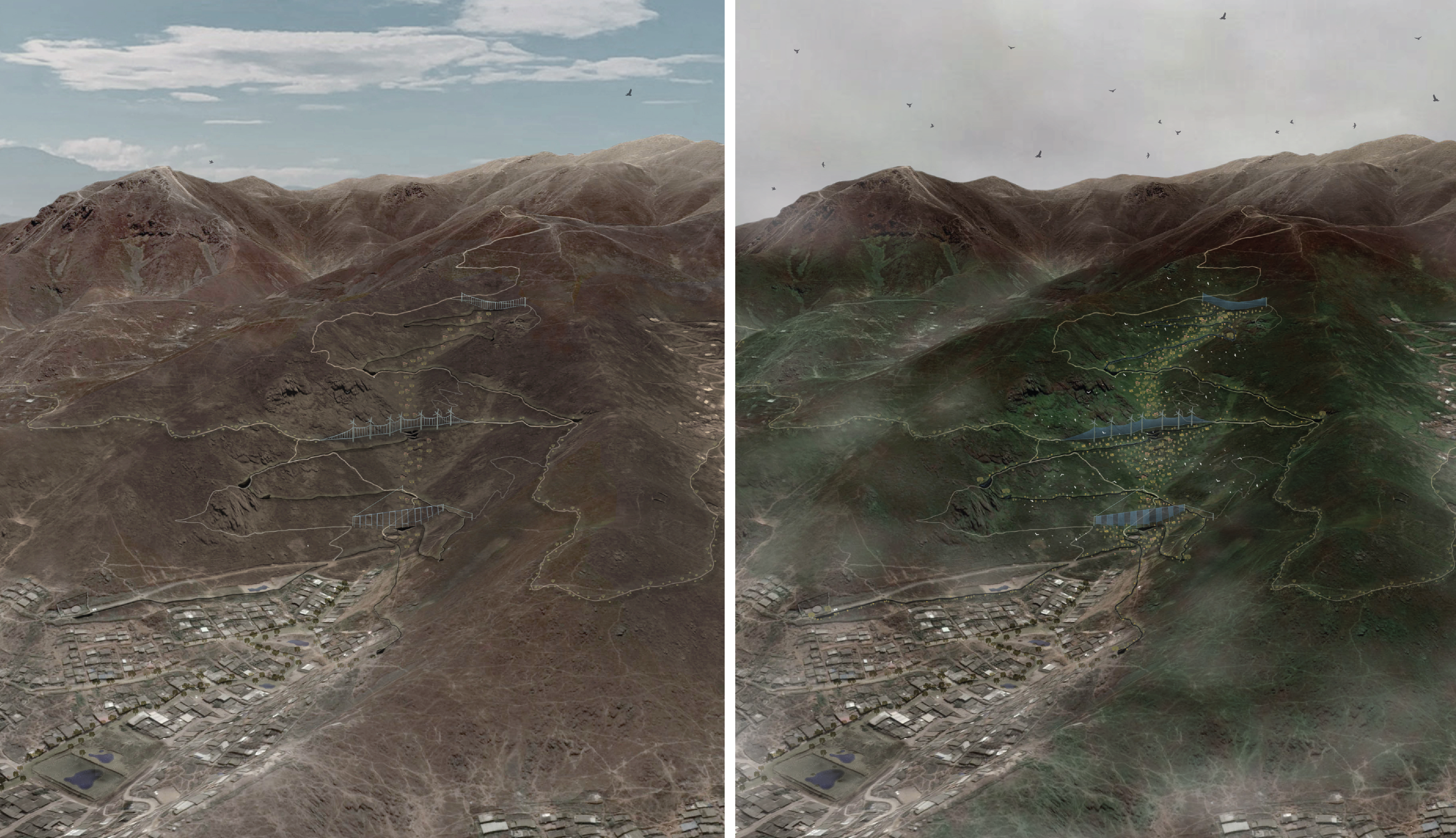
HARVESTING -in the- FOG. Socio-ecological system of Loma regeneration as a climate change response, from Valle Alto to Metropolitan Lima
PFC1
Pontificia Universidad Católica del Perú
Despite being part of the ecological structure of Lima city, the fragile and seasonal ecosystem of the Lomas Costeras faces the progressive reduction of its extension, biodiversity and eco-systemic services due to anthropic logics of informal urban growth, reducing its presence to fragmented islands of vegetation along the Metropolitan Lima’s periphery, being the south in the district of Villa María del Triunfo, where the problem is more latent.
Given this quality of metropolitan presence, a territorial and systemic approach, and diverse quantitative and qualitative information, the loma community of Valle Alto is identified as a relict of awareness and protection of the ecosystem, so as to propose a research and intervention model that can be extrapolated to the rest of the city´s lomas belt.
Based on 3 communal and territorial scale fog-harvesting devices, and the appointment of Valle Alto’s micro-basin as a unit for land management; various processes of capture, retention, distribution and infiltration of the harvested fog water are proposed so as to be distributed on the arid and loma hillsides, throughout interscalar and interrelated systems.
Collective fog-harvesting is the means to face informal occupations, loma depredation, improve the precarious conditions of Lima’s peripheral communities, and more importantly, to address the actual climate change crisis.
